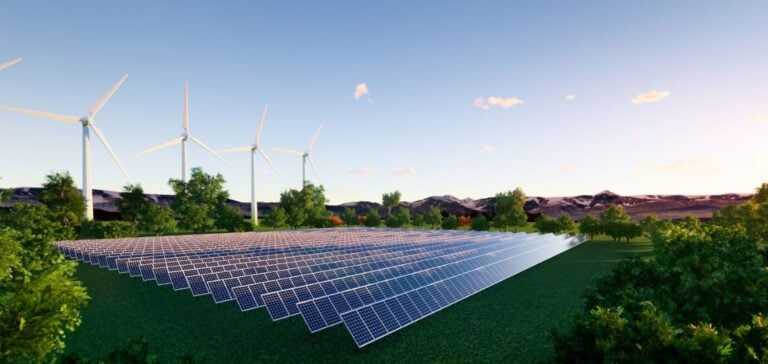Kibo Energy PLC recently signed a binding agreement with Swiss company ESGTI AG to acquire a diversified portfolio of renewable energy projects, including wind, solar and agri-photovoltaic initiatives.
The transaction, valued at 400 million euros, aims to achieve a production capacity of 20 GW within six years.
The structure of this acquisition is referred to as a “Reverse Takeover” (RTO), due to the size of the transaction in relation to Kibo’s current market capitalization of £1.7 million.
This type of transaction is often used by companies looking to grow rapidly by integrating significant assets.
The acquisition includes 36 projects under development in 15 countries, ranging from the initial phase to construction.
As part of this transaction, Kibo will increase its share capital and consolidate its shares at a ratio of 1:5,000.
In addition, an additional fundraising of 30 million euros is planned to support this transaction, raising questions about the interest of institutional investors and the viability of this fundraising.
Transaction structure and complexity
Structuring the transaction as a Reverse Takeover (RTO) presents significant challenges.
Indeed, this approach implies that the acquired entity is larger than the acquirer, which can lead to complications in terms of regulatory compliance and due diligence assessments.
Board and shareholder validation requirements, as well as regulatory approvals, add a layer of complexity that could delay or compromise the execution of the deal.
Companies engaged in RTOs have to navigate a rigorous regulatory environment, which can increase the risk of failure.
In parallel, Kibo plans to sell its subsidiary Kibo Mining (Cyprus) Limited, which holds coal-related assets and waste-to-energy projects.
The sale, valued at around £535,527 in liabilities, will be made to Aria Capital Management Limited, which will take over the historic payroll liabilities.
The move is seen as a fundamental change in Kibo’s business, requiring shareholder approval, and raises questions about the company’s strategy to focus on renewable energy projects.
Financial Risks and Challenges
Consolidation of Kibo shares at a ratio of 1:5,000 could result in significant dilution for existing shareholders.
This could raise concerns among investors, especially if the 30 million euro fund-raising does not meet with the expected interest.
A low level of participation from institutional investors could compromise Kibo’s ability to finance the acquisition, raising questions about the company’s financial strength in the short term.
In addition, the sale of KMCL, which holds legacy coal assets, is conditional on the acceptance of historical liabilities.
This indicates that Kibo is seeking to divest itself of unprofitable projects in order to lighten its balance sheet.
However, this strategy raises concerns about the quality of the remaining assets and the company’s ability to generate positive cash flows from the newly acquired projects.
The financial challenges associated with this transaction require careful attention to ensure Kibo’s long-term viability.
Growth potential and geographic expansion
The acquisition of 36 projects in 15 countries represents a significant opportunity for Kibo to diversify its portfolio and reduce the risks associated with specific markets.
The projects include a wide range of technologies, from wind and solar power to agri-photovoltaics.
This diversity is a risk management strategy, but it also entails operational challenges, notably managing projects in jurisdictions with varying regulations and market conditions.
Kibo is positioned in markets in transition to renewable energies, which could attract the attention of investors looking for solutions aligned with sustainable development goals.
However, the implementation of these large-scale projects within six years is ambitious.
Kibo’s ability to attract strong financial and operational partners will be crucial to the success of this initiative.
Strategic implications and open questions
If completed successfully, the transaction could transform Kibo’s valuation from a small to a mid-sized company with international reach.
However, reliance on institutional investors to raise the necessary funds and the level of share dilution remain critical points of uncertainty.
Managing such a diversified portfolio could also lead to governance challenges, particularly with regard to potential conflicts of interest with influential shareholders such as Aria Capital Management.
In sum, the acquisition of Kibo Energy PLC represents a significant step forward in the company’s growth strategy, but it is also marked by significant financial and operational risks.
The company’s ability to navigate these challenges will determine its future success in the renewable energy market.






















